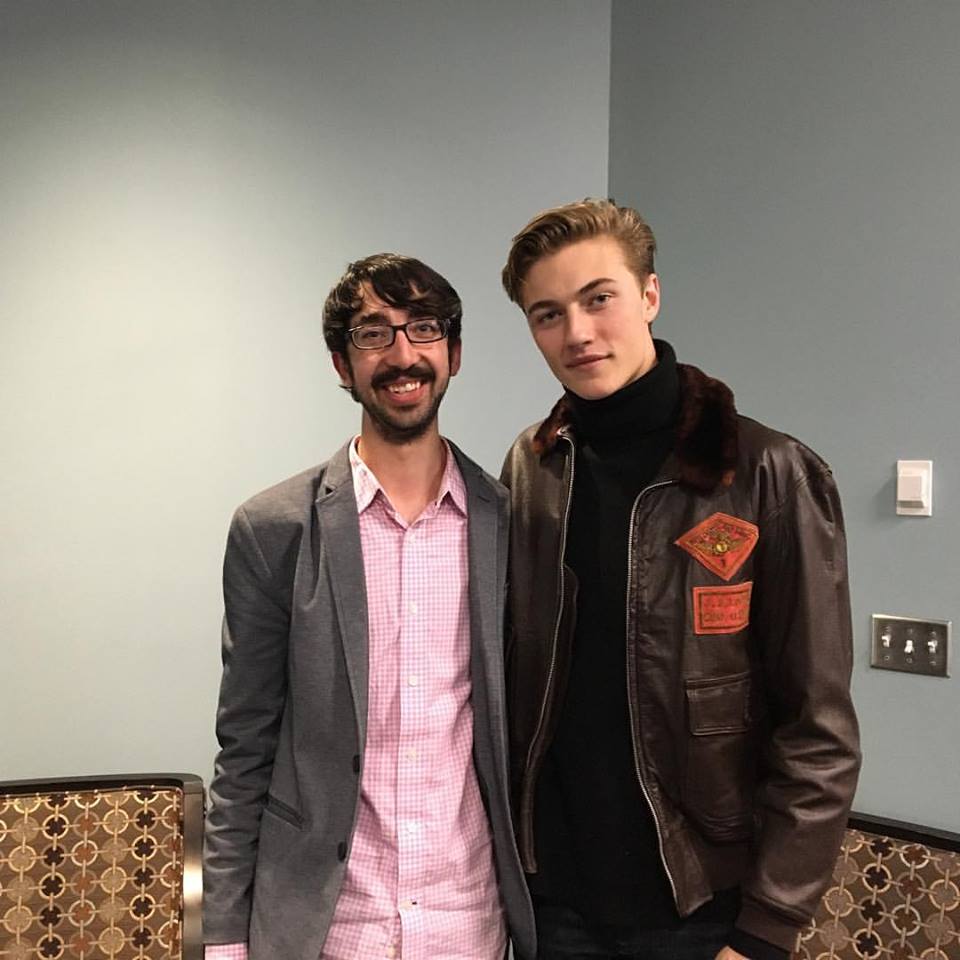I am not the target audience for Love Everlasting (I’m a twenty-something, avid film-watching, unorthodox Mormon, and somewhat film snobby guy) and went in quite skeptical. As the film began, my skepticism felt rewarded—not that what I was watching was bad per say, it just wasn’t really resonating with me. There was an extended seminary video vibe to it. However, that hokeyness started to drip away as I continued watching (whether it actually became less hokey or I adapted and surrendered to the hokeyness, I’m not sure).
As I spoke with Lucky Blue Smith, Utah-born male model and star of the film, he talked about how the message of the story was what drew him to it (in addition to a life-long passion for film, rivaling his oft-quoted passion for music as his first passion). The message definitely has a strong presence throughout the film (verging on didacticism and not high on subtlety or nuance). To the film’s credit it tackles some challenging material (self-harm most notably) in a way that I haven’t frequently seen on screen, especially not in something like this and that should be praised. Lucky hoped that at least one person would be touched by the story and feel that they are worthy of love—based on the reaction of the audience as I was watching, his hopes were drastically exceeded.
The dialogue was the weakest part of the film for me, though as I mentioned earlier, some of those concerns dissipated as the film went on. Lucky has a strong screen presence and is at his best when using his face and body to act (perhaps unsurprisingly given his career). In our conversation he mentioned that he hopes to keep acting, ultimately hoping to work with big names such as Wes Anderson, Steven Spielberg, and Christopher Nolan, also stating that he wants to avoid being pigeon-holed and typecast in his acting career, always challenging himself. Working with Anderson, Spielberg, or Nolan would definitely be a change of pace from this film and a challenge, but let’s hope that Lucky keeps challenging himself and growing as an actor and maybe we’ll see him in a summer blockbuster or an indie, Sundance hit.
The film is set in (and filmed in) Utah, yet there’s not a single mention of Mormons, Mormonism, or The Church of Jesus Christ of Latter-day Saints. I understand the motivations behind such a decision (hoping to universalize the story and not alienate a non-Mormon audience), but it felt odd and slightly awkward to me as I was watching. It seemed like Mormonism had been stripped from the lives of the characters (a couple scenes in particular struck me as touching Mormonism, while avoiding explicit discussion of it).
The acting from the rest of the cast is quite good—Christie Burke as Clover is particularly striking (the emotional center of the film for me), while Landon Henneman, Gabe Eckert, and Garet Allen are solid supporting cast members. Music is used evocatively throughout and the film looks pretty clean and well shot.
While I did not love the movie, if you’re looking for some decent, clean entertainment with a strong, clear message then this is worth checking out. Or if you value the arts in Utah and want to support locally made films. There’s lots of good here and that’s worth noting. And most of my concerns are either immaterial or unimportant to the target audience of the film, so let them watch and love and let Utah made films blossom.

